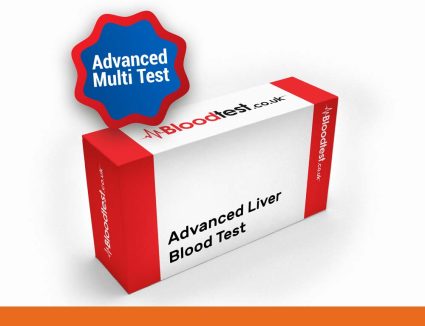Comprehensive Guide to Liver Blood Tests: Their Significance and Relevance
Unpacking the Functionality and Importance of Liver Blood Tests

A liver blood test in Dundee serves as a vital diagnostic instrument, crucial for assessing the overall health and functionality of your liver. This test measures various blood components, including essential liver enzymes, proteins, and other critical indicators that reflect liver performance. By providing detailed insights into liver operations such as detoxification, protein synthesis, and the production of vital biochemicals for digestion, this test is indispensable. By scrutinizing these levels, healthcare professionals can detect potential liver issues even in the absence of noticeable symptoms, making it a cornerstone of proactive healthcare. Understanding the intricacies of liver blood tests is essential for those keen on maintaining optimal liver health or addressing any symptoms indicative of underlying liver concerns.
The liver is a crucial organ that plays a significant role in the body’s metabolism and detoxification processes. When the liver sustains damage or develops disease, it may release specific enzymes and proteins into the bloodstream. A liver blood test quantifies these substances, allowing healthcare providers to identify any abnormalities that may necessitate further investigation or prompt treatment. For individuals aiming to safeguard their liver health or those experiencing symptoms of liver dysfunction, a comprehensive understanding of this diagnostic procedure is critical.
The Fundamental Importance of Liver Blood Tests for Health Monitoring and Disease Management
The critical role of a liver blood test in Dundee is paramount, especially concerning the early detection and management of liver diseases such as hepatitis, cirrhosis, and fatty liver disease. By identifying liver dysfunction at an early stage, healthcare providers can initiate necessary lifestyle changes, closely monitor patient progress, or prescribe medications aimed at preventing further liver damage. This proactive approach is vital for improving long-term health outcomes and avoiding complications that may arise from liver conditions.
Moreover, liver blood tests are not exclusively for patients presenting symptoms. They are also recommended for individuals with particular risk factors, including heavy alcohol consumption, obesity, or a family history of liver disease. Regular testing serves as a preventive measure, ensuring that any potential issues are detected before they escalate into serious health problems. By prioritizing these tests, individuals can take proactive steps toward safeguarding their liver health.
Additionally, liver blood tests are essential for monitoring ongoing liver conditions. Patients undergoing treatment for liver diseases typically require consistent testing to evaluate the effectiveness of their treatment regimens. Recognizing the importance of these tests empowers individuals to take control of their liver health, significantly impacting their overall well-being.
Ready to Expand Your Knowledge on Liver Health?
 When to Schedule Your Liver Blood Test and Why It Matters
When to Schedule Your Liver Blood Test and Why It Matters
Determining the right timing for a liver blood test in Dundee is crucial for protecting your health. If you experience symptoms such as jaundice, unexplained fatigue, or abdominal pain, prioritizing a liver blood test is essential. These symptoms often signal underlying liver complications that necessitate immediate medical evaluation.
Beyond symptomatic concerns, individuals with lifestyle-related risk factors should consider regular liver blood testing. For example, those who consume excessive amounts of alcohol or follow a high-fat diet should aim for annual screenings. Likewise, individuals managing conditions such as diabetes, high cholesterol, or obesity should also think about regular testing, as these factors greatly increase the risk of liver disease.
Furthermore, routine health check-ups—especially as you age or if you have a family history of liver issues—should incorporate liver blood tests. Taking a proactive stance will facilitate the evaluation of liver functionality and ensure that any concerns are promptly addressed, ultimately contributing to maintaining optimal health and preventing future complications.
Key Preparation Steps for Your Upcoming Liver Blood Test

Thorough preparation is crucial for achieving accurate results from a liver blood test in Dundee. Generally, patients are advised to fast for several hours prior to the test, usually between 8 to 12 hours, as food intake can interfere with the levels of certain enzymes and substances being measured. Following any specific instructions provided by your healthcare provider is vital to ensure the reliability of your results.
In addition to fasting, abstaining from alcohol consumption for at least 24 hours before the test is essential. Alcohol can significantly alter liver enzyme levels, potentially leading to misleading test results. If you are taking any medications, it is advisable to inform your healthcare provider beforehand, as some medications may also affect test outcomes.
Overall, adequately preparing for a liver blood test is a straightforward process that can significantly improve the reliability of the results, offering clearer insights into your liver health and functionality.
Proven Strategies for Preparing for Your Liver Blood Test
Essential Steps for Successful Preparation for Your Liver Blood Test
Preparing for a liver blood test in Dundee typically involves several critical yet straightforward steps aimed at ensuring the most accurate results possible. Patients are usually instructed to fast for a designated period, generally between 8 to 12 hours before the test. This fasting period is crucial for eliminating potential food-related interferences, leading to a clearer understanding of liver function and health.
It is also essential to adhere to any additional instructions provided by your healthcare provider. For instance, they may recommend avoiding strenuous exercise or certain medications in the days leading up to the test. These guidelines are designed to stabilize liver enzymes, which are vital for the accuracy of the test results. Proper preparation not only aids in achieving precise results but also offers peace of mind as you approach your appointment.
If you have any questions or concerns regarding the preparation process, do not hesitate to reach out to your healthcare provider. They can clarify any uncertainties you may have and provide tailored advice based on your medical history and lifestyle, ensuring you are well-prepared for the test.
Your Experience During the Liver Blood Test: What to Anticipate

The process of undergoing a liver blood test in Dundee is generally straightforward and efficient. Upon arriving at the testing facility, a healthcare professional will guide you through the procedure, ensuring you feel comfortable and informed throughout the process. Typically, the test involves drawing a small blood sample from a vein in your arm.
Before proceeding with the blood draw, the healthcare provider will cleanse the area with an antiseptic wipe and may apply a tourniquet to enhance the visibility of the vein. You might feel a brief pinch as the needle enters your vein, but the procedure is usually quick, lasting only a few minutes. After collecting the blood sample, a bandage will be applied to the site to prevent any bleeding.
During this time, it is essential to remain calm and relaxed. If you have a tendency to feel lightheaded or anxious about needles, inform the healthcare provider—they are trained to help you feel at ease throughout the process. Overall, the test is quick and causes minimal discomfort, making it an accessible option for anyone concerned about their liver health.
Critical Steps After Your Test: What to Do Next
Once you have completed your liver blood test in Dundee, you can typically resume your normal activities immediately. There are generally no restrictions on diet or exercise following the test, which is a relief for many patients. However, it may take several days for the results to be processed and communicated to your healthcare provider.
Upon receiving your results, your doctor will schedule a follow-up appointment to discuss the implications. They will interpret the findings concerning your overall health and any symptoms you may be experiencing. If your results are within normal ranges, it can provide reassurance about your liver health. Conversely, if any abnormalities are detected, your doctor will guide you on potential next steps, which may include further testing or referrals to specialists for comprehensive evaluations.
Understanding the timeline and procedure following a liver blood test can alleviate anxiety and provide clarity on what to expect, ensuring you remain informed every step of the way.
How to Access Liver Blood Tests in Dundee: Your Options Explained
Utilizing NHS Services for Comprehensive Liver Blood Testing in Dundee
If you’re considering a liver blood test in Dundee, reputable NHS services are available that offer thorough testing options. NHS Tayside operates several facilities throughout Dundee, including the well-known Ninewells Hospital and various community health centers. These locations are equipped with advanced technology and staffed by skilled healthcare professionals dedicated to your health and well-being.
To obtain a test through the NHS, a referral from your GP is typically necessary. Your GP will assess your symptoms and determine if a liver blood test is warranted. This approach ensures that the test aligns with your specific health situation, potentially saving you time and avoiding unnecessary procedures.
The NHS provides a reliable and cost-effective means to access liver blood tests, making it an excellent choice for individuals prioritizing their liver health. Be sure to check the availability of appointments and any specific requirements for the testing location you select to ensure a seamless experience.
Exploring Private Clinics for Efficient Liver Blood Testing in Dundee
For those seeking a more immediate or flexible approach, several private clinics in Dundee offer liver blood tests. These clinics often provide quicker results and more convenient appointment times compared to NHS facilities, making them an ideal option for individuals with busy schedules or those who prefer a more personalized healthcare experience.
In private clinics, you can typically self-refer without needing a GP’s referral, although discussing your health concerns with a healthcare professional beforehand may be beneficial. The relaxed atmosphere in private clinics often provides patients with a sense of comfort during their testing.
While private testing may incur a higher cost, the convenience and rapidity of results can outweigh the expense, especially for those anxious about their liver health or requiring prompt results for peace of mind or ongoing treatment decisions.
Convenient At-Home Testing Solutions for Monitoring Your Liver Health
The rise of telehealth and home testing services has made it increasingly convenient for individuals in Dundee to access a liver blood test without needing to visit a clinic. Several companies offer at-home liver blood testing kits, allowing you to collect a small blood sample and send it to a laboratory for analysis.
The convenience of at-home testing is significant. You can perform the test in the comfort of your home, which can be particularly beneficial for those who may experience anxiety when visiting a medical facility. The process typically includes a detailed instruction guide, enabling you to collect your sample securely and safely.
Once your sample is sent, you will receive your results online, often within a few days. However, ensuring that the service you select is reputable and that the laboratory performing the analysis is accredited is essential. While at-home testing is a convenient option, maintaining follow-up communication with a healthcare provider is crucial, as they can assist in interpreting the results and recommending any necessary actions based on your liver health.
Understanding and Interpreting Your Liver Blood Test Results
Deciphering Normal Ranges for Optimal Liver Function Evaluation
When you receive the results of your liver blood test in Dundee, understanding the normal ranges is vital for accurately assessing your liver health. Each laboratory may employ slightly different reference ranges, but healthcare providers typically adhere to standard accepted norms. These ranges are formulated based on healthy populations and help determine what constitutes normal liver function.
Common parameters measured in liver blood tests include alanine aminotransferase (ALT) and aspartate aminotransferase (AST), both of which are enzymes indicative of liver injury. Other critical measures encompass alkaline phosphatase (ALP), bilirubin, and albumin levels. Each of these components plays a unique role in evaluating liver health and functionality.
Your healthcare provider will review your results within the context of your overall health and any symptoms you may be experiencing. They will clarify whether your readings fall within normal ranges or if any abnormalities may require further investigation. Understanding these results empowers you to make informed decisions regarding your healthcare.
Analyzing Abnormal Results: Significance and Next Steps
Receiving abnormal results from a liver blood test in Dundee can understandably trigger concerns; however, it is important to recognize that various factors can influence these measurements. Elevated liver enzyme levels may indicate liver inflammation, damage, or disease. Nonetheless, other aspects—such as recent physical activity, medications, or dietary choices—can also impact test outcomes.
Abnormal results may suggest conditions such as hepatitis, fatty liver disease, or cirrhosis. It is crucial to discuss these possibilities with your healthcare provider, who may recommend additional tests or imaging studies to clarify the diagnosis. They can assist in distinguishing between temporary fluctuations and significant health issues that may necessitate further treatment.
Moreover, abnormal results do not always signify serious illness. They may reflect lifestyle factors or reversible conditions. Engaging in open dialogue with your healthcare provider about the implications of your results is vital for gaining a better understanding of your liver health and the necessary next steps.
Essential Next Steps Following Your Liver Blood Test Results
Upon receiving the results from your liver blood test in Dundee, comprehending the subsequent steps is vital, particularly if any abnormalities are identified. Your healthcare provider will elaborate on the implications of your results and may suggest follow-up tests to obtain a clearer picture of your liver health. This could include more specific blood tests, imaging techniques such as ultrasounds, or even liver biopsies in particular cases.
If your results indicate a liver condition requiring treatment, your doctor will collaborate with you to develop a personalized management plan tailored to your unique needs. This plan may involve lifestyle modifications, medications, or regular monitoring to track progress and adjust treatment as necessary.
Actively engaging in this process empowers you to take control of your health. Do not hesitate to ask questions regarding your results and treatment options, as understanding your condition is key to making informed decisions about your health.
The Significance of Regular Monitoring and Follow-Up Tests
For individuals with abnormal liver blood test results in Dundee, consistent monitoring is often essential to track liver function over time. Your healthcare provider will likely recommend a follow-up testing schedule, which can help identify any changes in liver health and assess the effectiveness of your treatment plan.
Monitoring is especially crucial for individuals diagnosed with chronic liver diseases, as ongoing assessment can help detect any progression or complications early on. Follow-up testing may also include routine liver blood tests, imaging studies, or assessments of liver function, depending on the specific health concerns being addressed.
Being proactive about your liver health is vital, and regular monitoring provides valuable insights into your overall well-being. If you notice any new symptoms or changes in your health, communicate with your healthcare providers so they can adjust the treatment options accordingly.
Identifying Common Liver Conditions Through Blood Tests
Understanding Hepatitis: Detection, Risks, and Management
Hepatitis is a significant liver condition that can be identified through a liver blood test in Dundee. This viral infection can lead to liver inflammation, manifesting a broad spectrum of symptoms, from mild fatigue to severe jaundice. Liver blood tests are instrumental in detecting hepatitis markers, enabling timely intervention and effective disease management.
The liver blood test evaluates specific enzyme levels and proteins that indicate liver inflammation and damage. If tests reveal elevated levels of ALT and AST, it could indicate an active hepatitis infection. Moreover, additional specific tests may be conducted to ascertain the type of hepatitis—whether it’s A, B, C, or another variant.
Understanding your risk factors, such as previous exposure to infected individuals or engaging in high-risk behaviors, can inform the necessity for regular testing. Early diagnosis and treatment of hepatitis are crucial for preventing long-term complications, including chronic liver disease or liver cancer.
Recognizing Cirrhosis: Understanding Implications and Management Strategies
Cirrhosis is a serious liver condition characterized by the scarring of the liver, frequently diagnosed through liver blood tests. These tests often reveal elevated liver enzymes and other markers indicating liver damage, providing early insights into this progressive disease.
Common causes of cirrhosis include chronic alcohol abuse, viral hepatitis, and non-alcoholic fatty liver disease. When the liver sustains damage, it attempts to repair itself, leading to scar tissue formation that can interfere with its normal functions. Blood tests are essential for identifying this condition, as they measure liver enzyme levels and other related substances that can indicate the severity of liver dysfunction.
If diagnosed with cirrhosis, regular monitoring and lifestyle changes are typically necessary to effectively manage the condition and prevent further liver damage. Engaging in a healthy lifestyle—such as maintaining a balanced diet, exercising regularly, and limiting alcohol intake—can significantly enhance liver health and overall quality of life.
Fatty Liver Disease: Risks, Detection, and Management Strategies
Non-alcoholic fatty liver disease (NAFLD) is increasingly prevalent and can be detected through a liver blood test in Dundee. This condition is characterized by fat accumulation in liver cells, potentially leading to inflammation and liver damage if left untreated.
Blood tests can reveal elevated liver enzymes, assisting in diagnosing NAFLD. Individuals at risk typically include those with obesity, diabetes, and metabolic syndrome, making awareness and regular testing crucial for early detection.
Effective management of fatty liver disease often involves lifestyle modifications, such as adopting a healthier diet and engaging in regular physical activity. Additionally, monitoring liver enzyme levels through periodic blood tests can help track the effectiveness of these lifestyle changes and ensure liver health is maintained over time.
Insights into Liver Cancer Detection and Management
Liver cancer can be a devastating diagnosis; however, liver blood tests can play a critical role in its early detection. Elevated levels of alpha-fetoprotein (AFP) are often associated with liver cancer and can be identified through these tests, providing essential insights for clinicians.
The presence of liver cancer may not always exhibit apparent symptoms until it has progressed significantly. Thus, regular screening through blood tests is particularly important for individuals at risk, such as those with cirrhosis or chronic hepatitis. Detecting liver cancer at an early stage can significantly enhance treatment outcomes and survival rates.
If your blood tests indicate elevated AFP levels, your healthcare provider may recommend further imaging studies to confirm the diagnosis and evaluate the extent of the disease. Engaging in discussions with your healthcare provider about liver cancer screening and risk factors is vital for anyone concerned about their liver health.
Understanding Cholestasis: Causes, Symptoms, and Management Implications
cholestasis refers to a condition where bile flow from the liver is obstructed, leading to increased levels of bile acids and bilirubin in the bloodstream. A liver blood test in Dundee can aid in diagnosing cholestasis by measuring these elevated levels, providing crucial information about liver function and health.
The causes of cholestasis can vary, ranging from bile duct obstructions to liver diseases. Symptoms may include jaundice, itchy skin, and dark urine. Early identification of this condition through blood tests can help determine the underlying cause and guide treatment options.
Management of cholestasis typically involves addressing the underlying issues causing the bile obstruction. Regular monitoring through liver blood tests can track liver health and function, ensuring any changes are promptly addressed. Collaborating with healthcare providers to understand the implications of cholestasis is crucial for maintaining overall liver health and preventing complications.
Key Lifestyle Factors That Influence Liver Health
The Impact of Diet and Nutrition on Promoting Optimal Liver Function
Nutritional choices play a pivotal role in maintaining liver health, and understanding how your diet affects liver function is essential for promoting overall well-being. A well-balanced diet supports the liver’s numerous functions, such as detoxification, nutrient storage, and metabolism.
Incorporating nutrient-dense foods, especially those rich in antioxidants, can protect the liver from oxidative damage. Foods such as leafy greens, vibrant vegetables, and fruits are particularly beneficial, as they may help reduce inflammation and promote liver vitality. Additionally, including sources of omega-3 fatty acids, such as fish, can enhance liver function and combat the onset of fatty liver disease.
Conversely, a diet high in saturated fats, refined sugars, and processed foods can adversely affect liver health. Such dietary choices may contribute to developing fatty liver disease and other liver conditions. Educating yourself about healthy eating habits empowers you to make informed dietary decisions that promote liver health and overall wellness.
The Risks of Alcohol Consumption on Liver Health: Understanding Recommendations
Alcohol consumption represents one of the most significant lifestyle factors influencing liver health. Excessive alcohol intake can lead to a spectrum of liver issues, including fatty liver, alcoholic hepatitis, and cirrhosis. Understanding the risks associated with alcohol consumption is essential for anyone concerned about their liver health.
The liver metabolizes alcohol; however, excessive consumption can overwhelm its capacity, resulting in inflammation and damage. Women are particularly vulnerable to alcohol-related liver diseases, as their bodies metabolize alcohol differently than men, often leading to more pronounced effects.
To safeguard liver health, it is crucial to consume alcohol in moderation, adhering to recommended guidelines. For individuals already experiencing liver issues or with a family history of liver disease, abstaining from alcohol altogether may be advisable. Engaging in discussions about alcohol consumption with healthcare providers can provide valuable insights into making healthier choices for your liver and overall well-being.
Frequently Asked Questions About Liver Blood Tests
What is the purpose of a liver blood test, and why is it significant?
A liver blood test evaluates the health of your liver by measuring enzymes and proteins in your blood. It is crucial for early diagnosis of liver diseases and for ongoing monitoring of liver function.
How should I prepare for a liver blood test?
Preparation involves fasting for 8-12 hours before the test and avoiding alcohol consumption. Inform your healthcare provider about any medications you are currently taking, as they may interact with the results.
Where can I obtain a liver blood test in Dundee?
You can obtain a liver blood test at NHS Tayside facilities, such as Ninewells Hospital, or through various private clinics, or via at-home testing services that are available.
What do normal liver blood test results indicate?
Normal ranges can vary slightly by laboratory; however, liver enzymes such as ALT and AST should typically fall within specific limits that indicate healthy liver function.
What could abnormal liver test results signify?
Abnormal results can indicate liver inflammation, damage, or disease; however, factors such as medications or dietary choices can also influence test outcomes.
What actions should I take if my liver test results are abnormal?
Consult your healthcare provider for an interpretation of the results and potential follow-up tests or referrals to specialists for further evaluation and management.
What are some common liver conditions detected through blood tests?
Common liver conditions include hepatitis, cirrhosis, fatty liver disease, liver cancer, and cholestasis, all of which can be diagnosed through blood tests.
How frequently should I undergo a liver blood test?
The frequency of testing depends on individual risk factors. Those with liver disease or risk factors may require annual tests, while others may only need testing if they exhibit symptoms.
Can I have a liver blood test without a referral?
Yes, many private clinics offer self-referral options for liver blood tests, allowing you to access testing without needing to go through your GP.
How does lifestyle impact liver health?
Diet, alcohol consumption, and overall lifestyle choices significantly affect liver health. A balanced diet and moderation in alcohol consumption can support liver function and prevent disease.
Connect with us on Facebook for more insights!
This Article Was First Found On https://bloodtest.co.uk
The Article Liver Blood Test Guide: Quick and Easy Tips for Dundee Residents Was Found On https://limitsofstrategy.com

